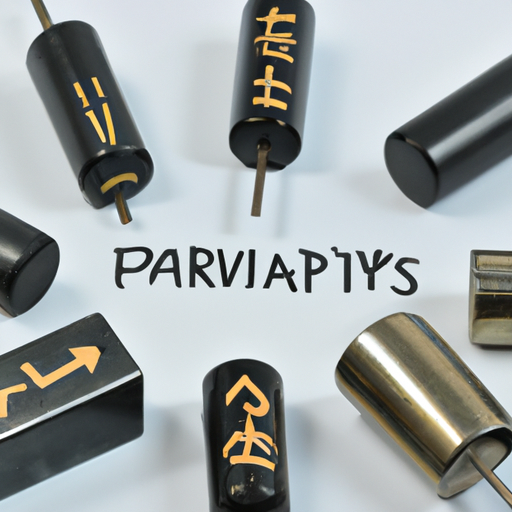Capacitors are essential components in electronic circuits, playing a crucial role in storing and releasing electrical energy. They are widely used in various applications, from power supplies and signal processing to filtering and timing circuits. Capacitors come in different types and sizes, each with its own unique characteristics and advantages. In this article, we will explore the benefits of capacitors and capacitance products in electronic systems.

Another advantage of capacitors is their ability to filter out unwanted noise and interference in electronic circuits. Capacitors can block high-frequency signals while allowing low-frequency signals to pass through, making them ideal for noise suppression and signal conditioning applications. By placing capacitors strategically in a circuit, designers can effectively reduce electromagnetic interference and improve the overall performance of the system.
Capacitors also play a crucial role in timing circuits, where they are used to control the rate of charge and discharge of electrical signals. By adjusting the capacitance value of a capacitor, designers can fine-tune the timing characteristics of a circuit, ensuring precise operation and synchronization of different components. Capacitors are commonly used in oscillators, timers, and pulse generators to generate accurate and stable timing signals.
In addition to their electrical properties, capacitors offer several practical advantages in electronic systems. Capacitors are compact and lightweight, making them easy to integrate into circuit designs with limited space. They are also relatively inexpensive compared to other electronic components, making them a cost-effective solution for a wide range of applications. Capacitors are available in a variety of sizes and capacitance values, allowing designers to choose the right component for their specific requirements.
Capacitors are also highly reliable and durable, with a long operational lifespan and minimal maintenance requirements. Unlike batteries, which degrade over time and require periodic replacement, capacitors can withstand thousands of charge-discharge cycles without significant degradation in performance. This makes capacitors an ideal choice for applications that require long-term reliability and stability, such as industrial control systems and automotive electronics.
Capacitors are also versatile components that can be used in a wide range of applications, from consumer electronics and telecommunications to automotive and aerospace systems. They are available in different types, including ceramic, electrolytic, and tantalum capacitors, each with its own unique characteristics and advantages. By selecting the right type of capacitor for a specific application, designers can optimize the performance and efficiency of their electronic systems.
In conclusion, capacitors and capacitance products offer a wide range of advantages in electronic systems, including energy storage, noise suppression, timing control, and reliability. With their compact size, low cost, and high performance, capacitors are essential components in modern electronic circuits. By understanding the benefits of capacitors and selecting the right component for a specific application, designers can ensure the optimal performance and reliability of their electronic systems.
Capacitors are essential components in electronic circuits, playing a crucial role in storing and releasing electrical energy. They are widely used in various applications, from power supplies and signal processing to filtering and timing circuits. Capacitors come in different types and sizes, each with its own unique characteristics and advantages. In this article, we will explore the benefits of capacitors and capacitance products in electronic systems.

Another advantage of capacitors is their ability to filter out unwanted noise and interference in electronic circuits. Capacitors can block high-frequency signals while allowing low-frequency signals to pass through, making them ideal for noise suppression and signal conditioning applications. By placing capacitors strategically in a circuit, designers can effectively reduce electromagnetic interference and improve the overall performance of the system.
Capacitors also play a crucial role in timing circuits, where they are used to control the rate of charge and discharge of electrical signals. By adjusting the capacitance value of a capacitor, designers can fine-tune the timing characteristics of a circuit, ensuring precise operation and synchronization of different components. Capacitors are commonly used in oscillators, timers, and pulse generators to generate accurate and stable timing signals.
In addition to their electrical properties, capacitors offer several practical advantages in electronic systems. Capacitors are compact and lightweight, making them easy to integrate into circuit designs with limited space. They are also relatively inexpensive compared to other electronic components, making them a cost-effective solution for a wide range of applications. Capacitors are available in a variety of sizes and capacitance values, allowing designers to choose the right component for their specific requirements.
Capacitors are also highly reliable and durable, with a long operational lifespan and minimal maintenance requirements. Unlike batteries, which degrade over time and require periodic replacement, capacitors can withstand thousands of charge-discharge cycles without significant degradation in performance. This makes capacitors an ideal choice for applications that require long-term reliability and stability, such as industrial control systems and automotive electronics.
Capacitors are also versatile components that can be used in a wide range of applications, from consumer electronics and telecommunications to automotive and aerospace systems. They are available in different types, including ceramic, electrolytic, and tantalum capacitors, each with its own unique characteristics and advantages. By selecting the right type of capacitor for a specific application, designers can optimize the performance and efficiency of their electronic systems.
In conclusion, capacitors and capacitance products offer a wide range of advantages in electronic systems, including energy storage, noise suppression, timing control, and reliability. With their compact size, low cost, and high performance, capacitors are essential components in modern electronic circuits. By understanding the benefits of capacitors and selecting the right component for a specific application, designers can ensure the optimal performance and reliability of their electronic systems.